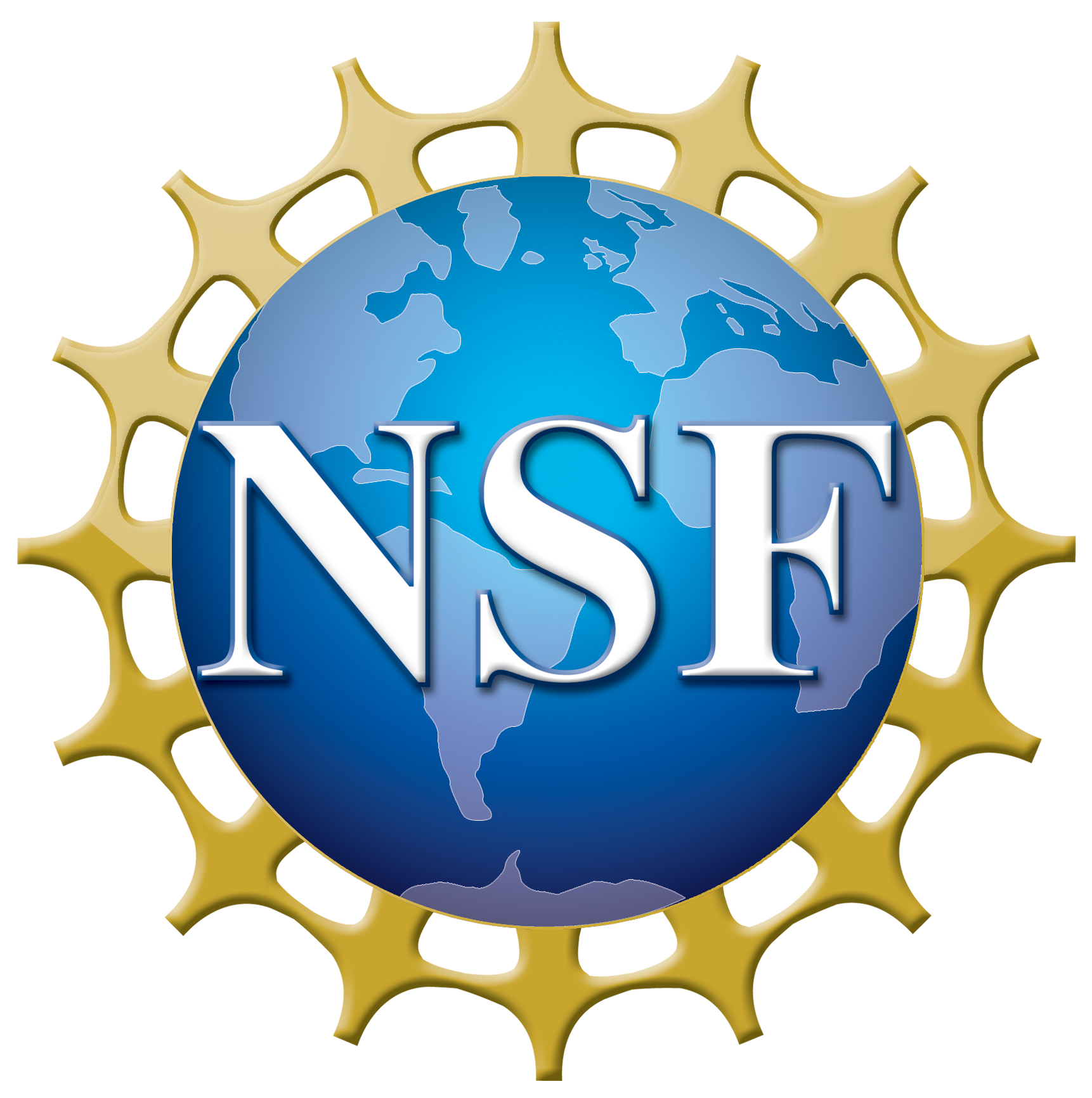
Nonye Alozie
SRI Education
Nonye Alozie, M.S., PhD, is a senior science education researcher at SRI International in Menlo Park, CA. Her expertise is in researching how student learning is enriched and impacted through various instructional interventions and innovations in science classrooms. She explores student learning through implementation research using qualitative analyses, and assessment design and development using novel evidence-centered design approaches. Alozie also specializes in discourse and behavioral analysis as they relate to developing student proficiency in STEM. She leads NSF-funded research and development projects that explore AI and collaboration characterization and assessment.

Jay Box
Higher Education Innovation
Dr. Jay K. Box
Chief Leadership Innovation Officer for Higher Education Innovation
and Retired President of the Kentucky Community and Technical College System
Dr. Jay K. Box has over 30 years of outstanding community college leadership, including as President of the Kentucky Community and Technical College System (KCTCS) – one of the top 10 systems in the country. He served on the White House’s American Workforce Policy Advisory Board, the national board for Rebuilding America’s Middle Class, and the Kentucky Workforce Innovation Board. Dr. Box was also a member of the Bill and Melinda Gates Foundation’s National Advisory Group, the American Association of Community Colleges’ Sustainability Education and Economic Task Force, the Southern Regional Education Board’s Commission on Career and Technical Education, and the Aspen Institute’s Innovation in Higher Education Working Group. Dr. Box is the 2020 recipient of the Lifetime Leadership Award from Higher Education Innovation (HEI). He now serves as an HEI consultant for colleges across the nation and as a leadership coach for college presidents and administrators.

Arthur Graesser
University of Memphis
Art Graesser is a professor in the Department of Psychology and the Institute of Intelligent Systems at the University of Memphis, as well as an Honorary Research Fellow at University of Oxford. His research interests question asking and answering, tutoring, text comprehension, inference generation, conversation, reading, problem solving, memory, emotions, artificial intelligence, computational linguistics, and human-computer interaction. He served as editor of the journal Discourse Processes and Journal of Educational Psychology, as well as presidents of four societies, including Society for Text and Discourse, the International Society for Artificial Intelligence in Education, and the Federation of Associations in the Behavioral and Brain Sciences. He and his colleagues have developed and tested software in learning, language, and discourse technologies, including those that hold a conversation in natural language and interact with multimedia (such as AutoTutor) and those that analyze text on multiple levels of language and discourse (Coh-Metrix and Question Understanding Aid — QUAID). He has served on four panels with the National Academy of Sciences and four OECD expert panels on problem solving, namely PIAAC 2011 Problem Solving in Technology Rich Environments, PISA 2012 Complex Problem Solving, PISA 2015 Collaborative Problem Solving (chair), and PIAAC Complex Problem Solving 2021

Neil Heffernan
Worcester Polytechnic Institute
Dr. Neil Heffernan is a Professor of Computer Science and Director of the Learning Sciences and Technologies program at Worcester Polytechnic Institute. Before entering academia, Neil taught middle school math and science in the Teach for America program in Baltimore where he met his wife Cristina. While completing his Ph.D. in Computer Science at Carnegie Mellon University, Neil incorporated his passion for education and focused on educational technologies. In 1997, Neil had a seizure and was told he had brain cancer and two years to live. This traumatic event helped Neil and Cristina learn what was important to them: making the world a better place. His personal experiences helped motivate Dr. Heffernan to create a free public platform. Neil and Cristina created the ASSISTments platform in 2003 as a forever-free service that is currently used by over 20,000 teachers and 500,000 students across the United States for daily classwork and nightly homework. In 2021, ASSISTments was named by WWC as one of three online middle-school math interventions proven to impact student achievement, and has a Tier 1 rating from Evidence for ESSA.
In October 2016 Dr. Heffernan was asked to present at the White House on the reproducibility crisis in educational research and the need for pre-registration and open-data. In December 2016, the Heffernans presented at the White House for a second time on the SRI evaluation that found ASSISTments increased student learning by seventy-five percent. Heffernan has received national press from U.S. News, Scientific American, The New York Times, The Boston Globe, and NPR. Dr. Heffernan has written 100+ papers on learning analytics and over two dozen papers on the results of randomized controlled trials. Dr. Heffernan continues to work on machine-learning methods as it relates to improving student learning. WPI and The ASSISTments Foundation collaborate on many federally and philanthropically funded projects.

Barbara Means
Digital Promise

Barbara Oakley
Oakland University
Barbara Oakley, PhD, PE is a Distinguished Professor of Engineering at Oakland University in Rochester, Michigan; Michigan’s Distinguished Professor of the Year; and Coursera’s inaugural “Innovation Instructor.” Her work focuses on the complex relationship between neuroscience and social behavior. Dr. Oakley’s research has been described as “revolutionary” in the Wall Street Journal. She is a New York Times best-selling author who has published in outlets as varied as the Proceedings of the National Academy of Sciences, the Wall Street Journal, and The New York Times. Her book A Mind for Numbers, on effective learning in STEM disciplines, has sold over a million copies worldwide. Dr. Oakley has won numerous teaching awards, including the American Society of Engineering Education’s Chester F. Carlson Award for technical innovation in engineering education and the Institute of Electrical and Electronic Engineers William E. Sayle II Award for Achievement in Education. Together with Terrence Sejnowski, the Francis Crick Professor at the Salk Institute, she co-teaches Coursera’s “Learning How to Learn,” one of the world’s most popular massive open online courses with some four million registered students, along with a number of other leading MOOCs.
Dr. Oakley has adventured widely through her lifetime. She rose from the ranks of Private to Captain in the U.S. Army, during which time she was recognized as a Distinguished Military Scholar. She also worked as a communications expert at the South Pole Station in Antarctica, and has served as a Russian translator on board Soviet trawlers on the Bering Sea. Dr. Oakley is an elected Fellow of the American Institute for Medical and Biological Engineering and of the Institute of Electrical and Electronics Engineers and the American Institute for Medical and Biological Engineering.

Carol O’Donnell
Smithsonian Institution
Dr. Carol O’Donnell is the Senior Executive and Director of the Smithsonian Science Education Center (SSEC), an organization of the Smithsonian Institution dedicated to transforming K-12 Education through Science™ in collaboration with communities across the globe. In her role at the Smithsonian (a non-profit with quasi-governmental status), Carol serves as the US representative on the Global Council of the InterAcademy Partnership (IAP) Science Education Programme (SEP), an appointment by the US National Academy of Sciences, Engineering, and Medicine; and she serves on the UN Broadband Commission Working Group on School Connectivity: Hybrid Learning. Carol also represents the Smithsonian on the Subcommittee on Federal Coordination in STEM Education (FC-STEM), which advises and assists the Committee on STEM Education (CoSTEM) of the Office of Science and Technology Policy of the Executive Office of the President. In her role on the Program Committee for the International Dialogue on STEM Education, Carol co-authored the position paper on “STEM Education for Sustainable Development” (http://bit.ly/3a3ObkS). Prior to joining the Smithsonian, Carol was a group leader at the US Department of Education, supporting States’ and districts’ implementation of ESEA programs; she also oversaw the Cognition and Student Learning research grant program of the Institute of Education Sciences (IES).
Carol is the winner of the American Educational Research Association (AERA) Graduate Research Excellence Award; National Alliance for Partnerships in Equity “Unsung Hero Award;” and the University of Pittsburgh Distinguished Alumni Award. She was honored to receive on behalf of SSEC the Smithsonian Innovation in Education Award for their work on the “Smithsonian Science for Global Goals” project. Dr O’Donnell is the Principal Investigator on an NSF INCLUDES and DRK-12 planning grant award for SSEC’s work in “Building Networks and Enhancing Diversity in the K-12 STEM Teaching Workforce” and PI of the grant “Integrating Inclusive/Universal Design and Accessibility Strategies into K-12 STEM Classrooms.” A former K-12 teacher and curriculum developer, Dr. O’Donnell is still in the classroom today, serving on the part-time faculty of the Physics Department at The George Washington University, where she earned her doctorate. Her TedX talk demonstrates her passion for integrating digital and physical interactions in science classrooms.

Mairéad Pratschke
The London School of Economics and Political Science

Kiri Wagstaff
Oregon State University

